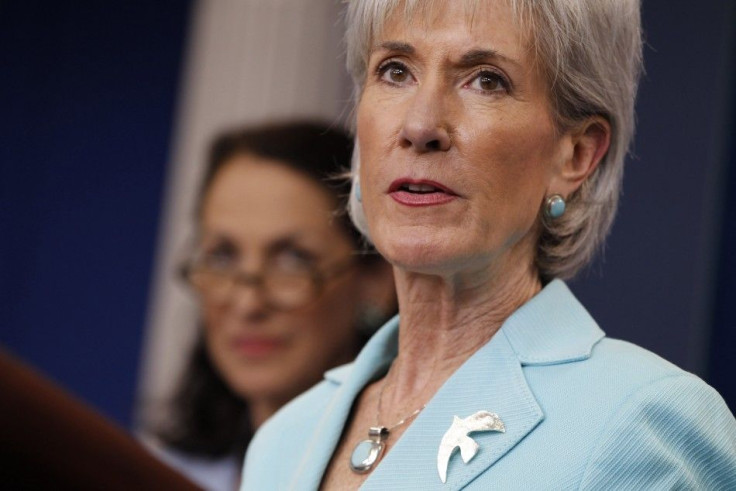Kathleen Sebelius: New Proposal For Health Insurance Marketplace

Secretary of Health and Human Services Kathleen Sebelius on Friday announced three efforts she says will help states lower their share of costs for approximately nine million people who are eligible for both Medicare and Medicaid benefits.
These so-called dual eligibles make up just 15 percent of Medicaid beneficiaries but account for almost 40 percent of the Medicaid cost, in addition to Medicare paying for part of the care, because these people have significant health needs, Sebelius said.
The Obama administration pushed harder for its strict deadline of January 2013 to certify state health insurance exchanges and proposed that each exchange - showing progress - receive conditional approval, in becoming fully operational by January 2014.
States are in a heck of a pickle in terms of whether they should implement these exchanges, because there's so much that's still unknown: Will the health law go into effect? Will a Republican administration be the one to implement it after 2012? Robert Laszewski, a health policy specialist with clients across the health-care industry, told The Washington Post. So [Obama officials] want to give as many of these states the possibility of implementing once the unknowns become known, he added.
The change - one of several included in a proposed rule - was introduced Monday.
According to federal officials at the United States Department of Health and Human Services (HHS), the proposed guidelines introduced a framework to provide greater flexibility and assist states in building the exchange websites, which serve as state-based competitive markets where individuals and small businesses will be able to purchase private health insurance.
According to the document, although the statute requires HHS to approve state exchanges no later than January 1, 2013, there will be systems development and contracting activities that continue to occur in 2013 after the statutory deadline for approval. In order to accommodate states that are making progress towards the operational date of January 1, 2014, HHS may issue a conditional approval.
The document went on to say that so-called conditional approval assumes that the state exchange would be operational by January 1, 2014 even if it cannot demonstrate complete readiness on January 1, 2013.
The three new proposed programs by Sebelius:
- A demonstration project that lets states work with the Centers for Medicare & Medicaid Services work together with health plans to provide comprehensive, coordinated care.
- A program geared to preventing residents of nursing homes from having to be admitted to a hospital. CMS will select nursing facilities that wish to participate in an effort to employ nurse practitioners who would implement best practices to prevent falls, pressure ulcers, urinary tract infections or other events that commonly send nursing home patients to the hospital, but which could be avoided with better care.
- A resource center to help states deliver coordinated healthcare to high-cost beneficiaries. The center will provide technical assistance to states, sharing best practice information or programs that have been effective elsewhere.
© Copyright IBTimes 2024. All rights reserved.











